5 Drones that are Good for Beginners in our opinion are:
• Ryze Tech Tello
• Potensic T25
• Holy Stone HS720E
• Ruko F11 Pro
• DJI Mini SE
Embarking on the exciting journey into the world of drones can seem overwhelming, especially with countless options flooding the market. To ensure a smooth and enjoyable experience, it is crucial for beginners to choose the right drone that suits their needs and skill level. There are various factors to consider, such as affordability, ease of use, flight stability, and safety features, among others. Our curated selection of top beginner drone will equip you with the necessary knowledge to make an informed decision, allowing you to take your first step toward a rewarding and exhilarating aerial adventure.
1. Are Drones Easy To Fly?
Mastering drone flight might initially appear intimidating, but it is easier. The transition to flying a drone should be smooth for those familiar with video games or smartphone apps.
To truly impress seasoned pilots, try adopting the “pinching” technique to control the sticks on the remote. Using the thumb and forefinger on each stick allows for more precise movements, unlike the thumb-only approach, which is typically associated with gaming experience. This method also discourages applying excessive force, though most drones can handle it.
2. Pre-flight Checklist
A pre-flight checklist is a list of items to inspect before each flight. The FAA and drone manufacturers recommend that drone pilots follow checklists during crucial stages, such as before, during, and after a mission.
A drone pre-flight checklist helps ensure that the drone is flight-ready and that the pilot has everything required for the flight. It also helps maintain safe and legal drone operation. The checklist covers everything from physical checks to document verification, ensuring optimal drone performance and safety for the pilot and those in the surrounding area.
• WEATHER: Check for upcoming rain and wind speed.
• NO FLY ZONE: Verify that your flight route does not overlap with a No Fly Zone.
• INTERFERENCE: Inspect the area for mobile/radio towers, electrical wires, and metallic objects.
• OBSTACLES: Confirm that your take-off and flight path are clear of obstacles.
• PEOPLE: Make sure no people are within your flight area.
• TEMPERATURE: Ensure the temperature is within the drone’s limits.
• SD CARD: Check that your SD card is installed in your drone and formatted correctly.
• CLEAN DRONE SENSORS: Ensure all vision and infrared sensors are clean.
• TAKE OFF PAD: Place your drone on a level surface for take-off.
• GIMBAL COVER: Remove the Gimbal Cover.
• INSERT BATTERY: Use a fully charged battery and listen for the audible click.
• TURNING DRONE ON: Make sure no obstacles interfere with the aircraft’s gimbal.
• TURNING CONTROLLER ON: Ensure the controller has sufficient charge.
• LOADING THE APP: Connect your phone/tablet to the controller and the drone.
• CHECK FOR FIRMWARE UPDATES: Download and install required firmware updates.
• CHECK FOR ERROR MESSAGES: Address any error messages.
• GPS MODE: Wait for the home point recording and GPS Mode activation.
• PROPELLERS: Verify that all propellers are installed correctly.
• HOVER: Take off and hover for a minute to detect any abnormalities.
• FLY: Once everything is checked, enjoy your flight!
3. Do I need a license to fly a drone?
Understanding the licensing requirements for flying a drone is essential for both recreational and commercial users. While drone pilots are not required to have a license per se, they must obtain a certificate demonstrating their knowledge and competency in operating drones safely and within the Federal Aviation Administration (FAA) guidelines.
For recreational drone pilots, the FAA requires them to complete The Recreational UAS Safety Test (TRUST). This test ensures that pilots possess a basic understanding of drone safety, operational guidelines, and the FAA’s rules and regulations. Successfully completing TRUST earns the pilot a certificate, which they must carry with them while flying their drone for recreational purposes.
Commercial drone operators, on the other hand, must obtain a Part 107 certificate (commonly known as a drone pilot license). This certification process involves passing a more comprehensive knowledge test covering various topics, including airspace rules, flight restrictions, and emergency procedures. Commercial drone pilots must also submit a flight plan and may need to acquire insurance, depending on their specific business activities. It is important to note that flying a drone without the appropriate certification is illegal in most countries and can result in penalties.
4. What attributes are good for beginners?
As a beginner drone pilot, it is crucial to develop specific attributes to guarantee a safe and enjoyable flying experience. Here are some key points to consider:
• Start with manageable goals: Choose an open field away from people or obstacles for your initial flights. Use the ‘beginner mode’ feature to familiarize yourself with the drone’s controls and functions while limiting its capabilities.
• Prioritize spacious environments: Begin by flying in wide-open spaces, ensuring you have ample room to maneuver. As you become more proficient with the controls, you can gradually attempt flying in tighter spaces.
• Thoroughly read the manual: Study the drone’s manual, paying particular attention to essential areas like drone control and emergency procedures. This knowledge will help you operate the drone more confidently and safely.
• Utilize the drone app and simulator: Using the drone app and simulator is an excellent way to build confidence in your drone control skills and develop muscle memory before taking your drone out for actual flights.
• Perform pre-flight inspections: Carefully examine your drone for any visible signs of damage or issues before each flight. This ensures that it is in optimal condition for a safe and smooth flight.
• Be mindful of weather conditions: Avoid flying your drone in adverse weather conditions like rain, high winds, or lightning, as they can negatively impact the drone’s performance and safety.
• Regularly check battery levels: Make sure both the drone’s battery and the remote control have adequate power before flying, as this will help prevent any unexpected issues during the flight.
• Familiarize yourself with local laws: It is crucial to understand the legal requirements and regulations for drone operation in your area to avoid any potential violations or penalties.
5. Essential Features for Beginner Drones
When purchasing a drone for the first time, it’s important to consider the following features that are particularly useful for beginners:
• Flight time: Beginner drones typically have flight times between 5-10 minutes. Choose a drone with a swappable battery for extended flying sessions.
• Camera: A camera can be an add-on or integrated feature, depending on the drone. Consider your photography and videography needs when selecting a drone.
• Headless mode: This mode simplifies drone control by ignoring the drone’s orientation, making it easier for first-time pilots to navigate.
• Return home function: This feature automatically returns the drone to its starting point, which is especially helpful if you lose sight or control of the aircraft.
• 3-axis gimbal: A 3-axis gimbal stabilizes the camera by pivoting around it, ensuring smooth and stable footage across pitch, roll, and yaw axes.
• Range: Consider the drone’s operational range, which determines how far away you can control the aircraft.
• Spare parts availability: Ensure that spare parts for your chosen drone are readily available, as they might be necessary in case of accidents or malfunctions.
6. Here are 5 Good Drones for Beginners In Our Opinion:
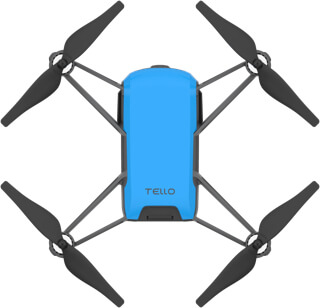
DJI Ryze Tello (credit Ryzerobotics)
Ryze Tech Tello
The Ryze Tech Tello is an affordable, lightweight drone ideal for beginners. It offers a 720p camera for capturing aerial photos and videos and a flight time of approximately 13 minutes. With features like altitude hold, one-touch takeoff and landing, and an app for programming custom flight patterns, Tello provides an enjoyable and user-friendly flying experience.
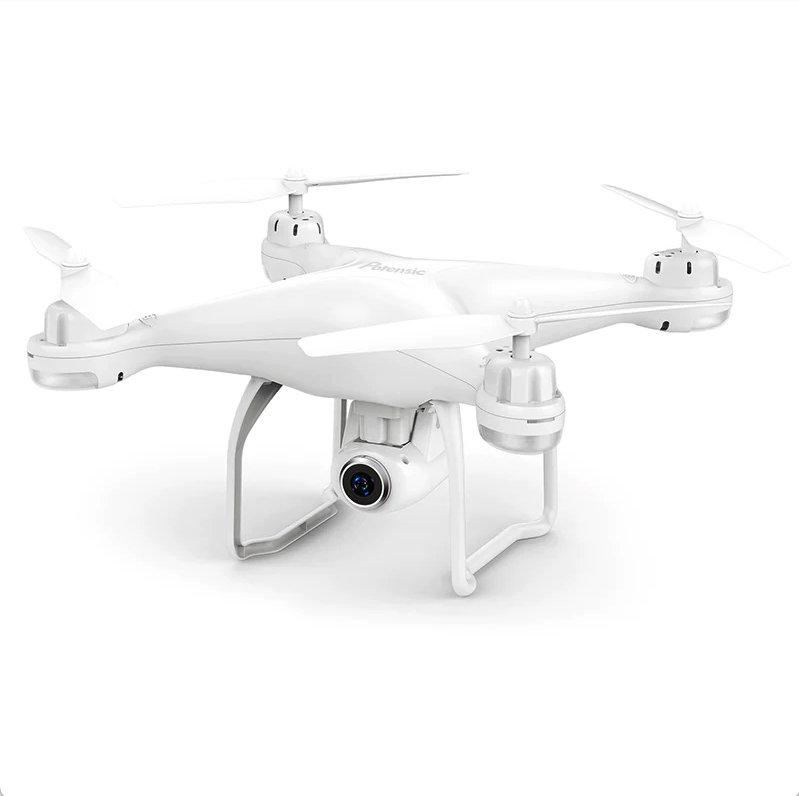
(credit: Potensic)
Potensic T25
The Potensic T25 is a budget-friendly drone with a 1080p HD camera and GPS functionality. It boasts a flight time of up to 15 minutes, and its GPS-assisted return home feature ensures that the drone returns safely when the battery is low or when it loses signal. The T25 also offers features such as altitude hold, headless mode, and follow me mode.
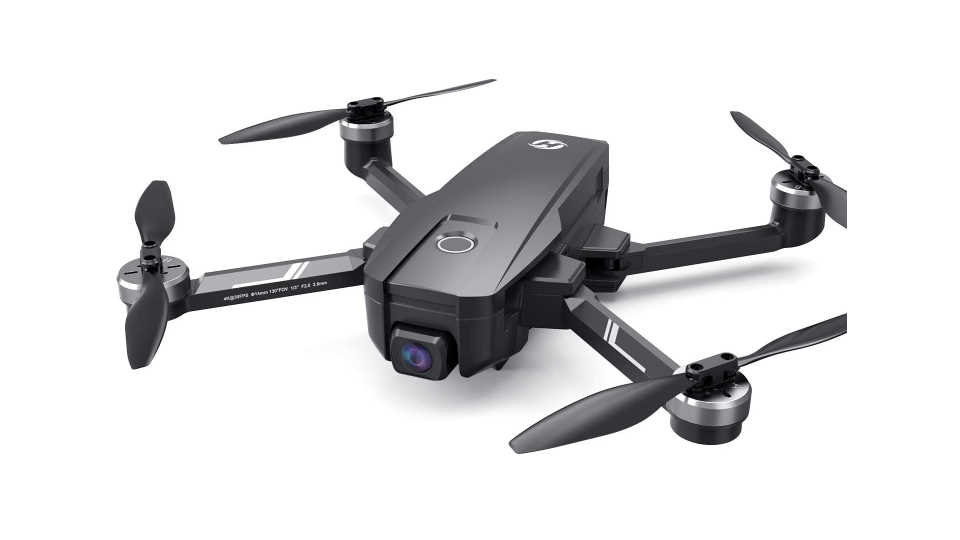
(credit Holy Stone)
Holy Stone HS720E
The Holy Stone HS720E is a popular choice for beginners due to its 4K camera, brushless motors, and GPS-assisted flight. With a flight time of approximately 23 minutes and a 1200-meter control range, the HS720E offers a solid performance for its price range. Additional features include intelligent flight modes, foldable design, and a quick-release battery.
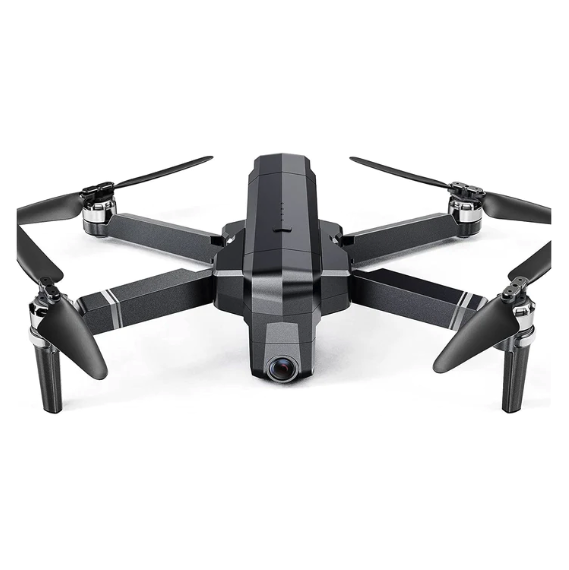
(credit Ruko)
Ruko F11 Pro
The Ruko F11 Pro is a cost-effective drone with a 4K camera and a flight time of up to 30 minutes. Its GPS functionality enables precise hovering, and its brushless motors provide stability and power. The F11 Pro offers a variety of intelligent flight modes, such as waypoint flight, follow me mode, and orbit mode.
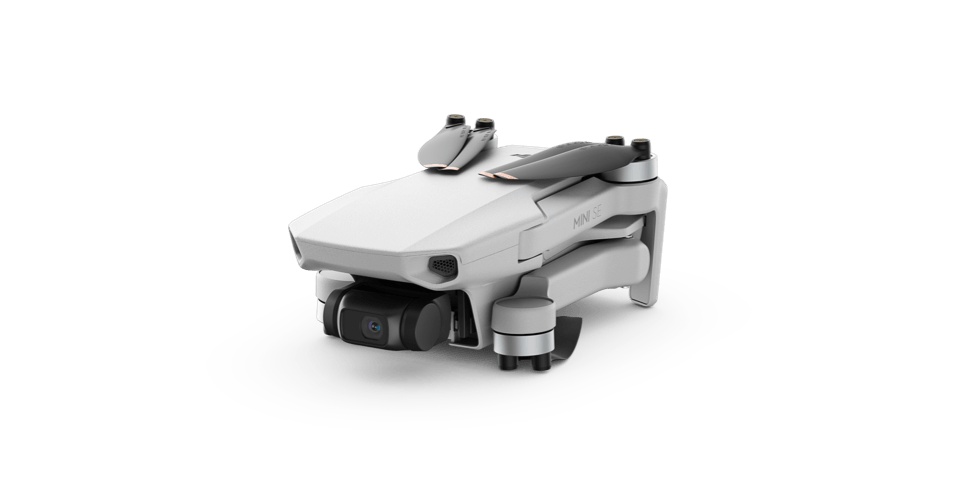
(credit DJI)
DJI Mini SE
The DJI Mini SE is an entry-level drone from a well-known brand. It offers a 2.7K camera, 3-axis gimbal stabilization, and a flight time of up to 30 minutes. Weighing just 242 grams, the Mini SE is portable and easy to carry. Its user-friendly DJI Fly app, GPS-assisted flight, and various intelligent flight modes make it an excellent choice for beginners.
There are various beginner-friendly drones available that offer a range of features and fit within a budget of $300. From the compact Ryze Tech Tello to the feature-packed DJI Mini SE, these drones are designed to help beginners learn the ropes of drone flying while capturing stunning aerial footage. By considering factors such as flight time, camera quality, and special features, you can find the perfect drone to kickstart your journey into the exciting world of drone piloting.

I own the Ryze Tech Tello and absolutely love it!